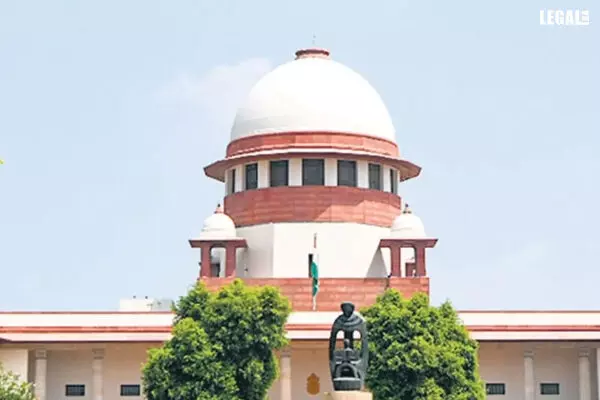- Home
- News
- Articles+
- Aerospace
- Artificial Intelligence
- Agriculture
- Alternate Dispute Resolution
- Arbitration & Mediation
- Banking and Finance
- Bankruptcy
- Book Review
- Bribery & Corruption
- Commercial Litigation
- Competition Law
- Conference Reports
- Consumer Products
- Contract
- Corporate Governance
- Corporate Law
- Covid-19
- Cryptocurrency
- Cybersecurity
- Data Protection
- Defence
- Digital Economy
- E-commerce
- Employment Law
- Energy and Natural Resources
- Entertainment and Sports Law
- Environmental Law
- Environmental, Social, and Governance
- Foreign Direct Investment
- Food and Beverage
- Gaming
- Health Care
- IBC Diaries
- In Focus
- Inclusion & Diversity
- Insurance Law
- Intellectual Property
- International Law
- IP & Tech Era
- Know the Law
- Labour Laws
- Law & Policy and Regulation
- Litigation
- Litigation Funding
- Manufacturing
- Mergers & Acquisitions
- NFTs
- Privacy
- Private Equity
- Project Finance
- Real Estate
- Risk and Compliance
- Student Corner
- Take On Board
- Tax
- Technology Media and Telecom
- Tributes
- Viewpoint
- Zoom In
- Law Firms
- In-House
- Rankings
- E-Magazine
- Legal Era TV
- Events
- Middle East
- Africa
- News
- Articles
- Aerospace
- Artificial Intelligence
- Agriculture
- Alternate Dispute Resolution
- Arbitration & Mediation
- Banking and Finance
- Bankruptcy
- Book Review
- Bribery & Corruption
- Commercial Litigation
- Competition Law
- Conference Reports
- Consumer Products
- Contract
- Corporate Governance
- Corporate Law
- Covid-19
- Cryptocurrency
- Cybersecurity
- Data Protection
- Defence
- Digital Economy
- E-commerce
- Employment Law
- Energy and Natural Resources
- Entertainment and Sports Law
- Environmental Law
- Environmental, Social, and Governance
- Foreign Direct Investment
- Food and Beverage
- Gaming
- Health Care
- IBC Diaries
- In Focus
- Inclusion & Diversity
- Insurance Law
- Intellectual Property
- International Law
- IP & Tech Era
- Know the Law
- Labour Laws
- Law & Policy and Regulation
- Litigation
- Litigation Funding
- Manufacturing
- Mergers & Acquisitions
- NFTs
- Privacy
- Private Equity
- Project Finance
- Real Estate
- Risk and Compliance
- Student Corner
- Take On Board
- Tax
- Technology Media and Telecom
- Tributes
- Viewpoint
- Zoom In
- Law Firms
- In-House
- Rankings
- E-Magazine
- Legal Era TV
- Events
- Middle East
- Africa
Supreme Court Initiates Suo Motu Cognizance over Non-Settlement of Pension Dues of Retired Employees of Bombay High Court (Goa Bench)

Supreme Court Initiates Suo Motu Cognizance over Non-Settlement of Pension Dues of Retired Employees of Bombay High Court (Goa Bench)
The Supreme Court has registered suo motu proceedings after former employees of the Bombay High Court Registry wrote a letter to the Chief Justice of India (CJI) DY Chandrachud claiming that despite the lapse of three to seven years their pensionary dues have not been settled.
The three judges bench comprising of CJI and Justices P S Narasimha and J B Pardiwala took suo motu (on its own) cognizance of the letter and turned it into a petition while issuing notices to the state governments of Maharashtra and the Goa and the Registrar General of the Bombay High Court.
Through the letter, the CJI was apprised that a former High Court employee had committed suicide due to mental stress, as a result of the delayed pension.
The bench noted that urgent action was needed in the matter.
In this regard, the Court ordered, “In view of the what is being stated before the Court, we are of the view that urgent action is required to be taken by State of Maharashtra and Goa in conjunction with the Chief Justice of Bombay High Court.”
Apparently, the two states do not want to come forward to settle the grievances of the former employees of the High Court, the CJI orally noted during the hearing.
A branch of the Bombay High Court is located in Goa which does not have a separate high court.
The grievance of the employees was that they were receiving only provisional pension even after three to seven years of their retirement, they had not received either commutation nor any other benefits.
Thereafter, the bench appointed lawyer Mahfooz Nazki as amicus curiae for assistance in the matter.
“Mr Nazki, see if you can speak with them on call. They are all humble employees of the High Court,” CJI Chandrachud told the lawyer during the hearing.
Thereafter, while issuing notice to the Registrar General of the High Court of Bombay as well, the Court ordered, “Notice shall be issued by the Registrar General of the High Court of Bombay in two weeks. The Registry shall also cause a copy of the present order together with the underlying communication of the employees to be served on the standing counsel for the State of Maharashtra and Goa.”



